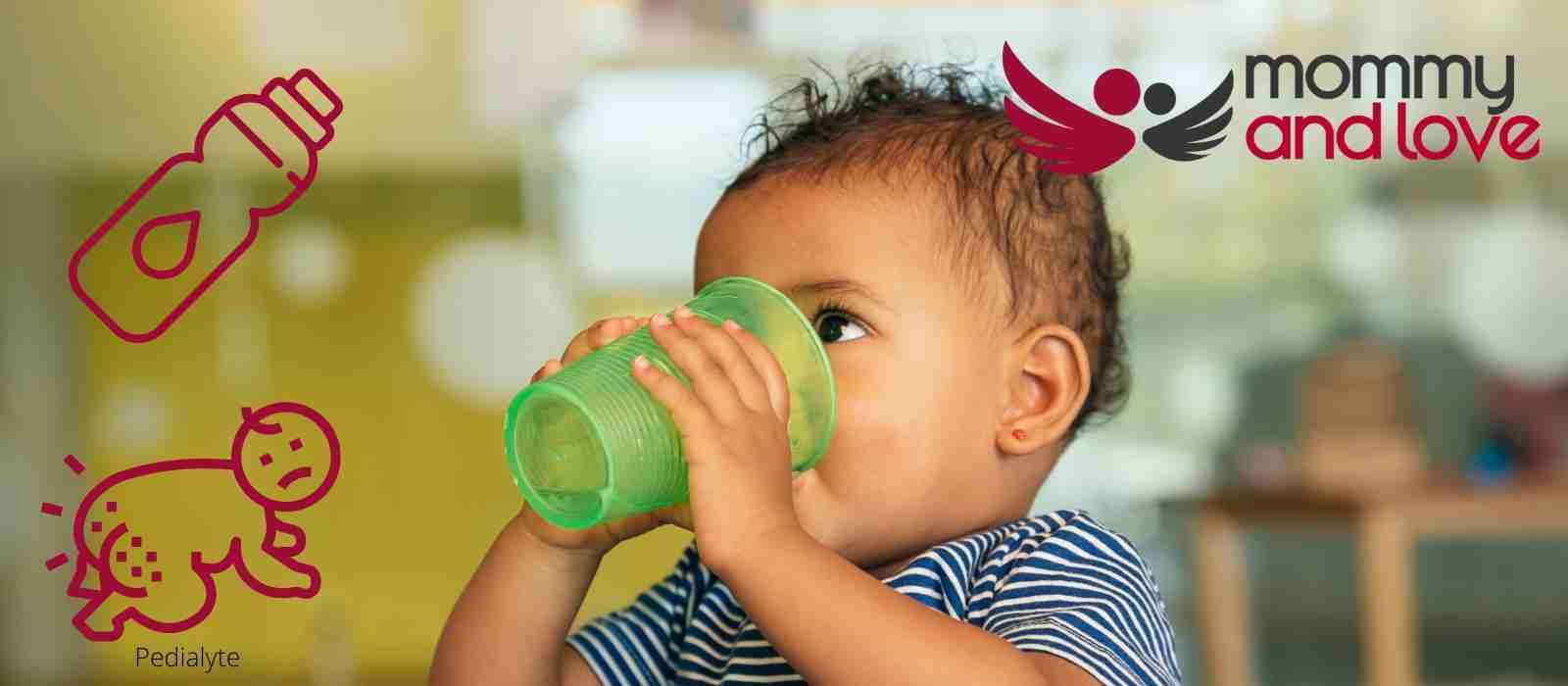There are a lot of myths and old wives tales when it comes to taking care of a baby. One question that comes up often is whether or not Pedialyte can cause diaper rash. Here we will take a look at the science behind this claim and try to get to the bottom of it.
What is Pedialyte?
Pedialyte is a rehydration solution that is taken orally. Oral rehydration solutions are intended to improve fluid absorption and are generally useful in the treatment of dehydration caused by diarrhea and other conditions. It is also used to restore fluids and minerals lost due to diarrhea and vomiting, such as salt and potassium. The proper balance of fluids and minerals is essential for the body’s optimal functioning.
Pedialyte is designed to rehydrate people of all ages, from infants to adults. It’s frequently advised for patients healing from the stomach flu, diarrhea, and other infections, as well as athletes.
Pedialyte is widely available and does not require a prescription. As a result, many parents depend on it to keep their babies and children stay hydrated and treat signs of dehydration during bouts of vomiting, diarrhea, or other diseases.
Giving Pedialyte to young children, however, may pose some risk.
Is Pedialyte safe for babies?
Generally, Pedialyte is safe for children over the age of 1 provided that it is prepared and stored properly as well as consumed within 48 hours otherwise should be discarded. It should only be administered to young babies under the age of one especially those with specific health and medical problem under the supervision of a doctor due to possible medicine and drug interactions.
When does Pedialyte usually given to children?
Healthcare professionals normally recommend Pedialyte to your child as soon as vomiting or diarrhea begins to assist prevent hospitalization due to dehydration. It may also be prescribed if you have a high fever, excessive perspiration, or a lack of fluid intake when sick.
Pedialyte should be given with nursing or formula feeding, not in place of it, to young newborns who have not yet been weaned.
Pedialyte should be administered instead of plain water or other fluid medicine to children who no longer drink breastmilk or formula. Furthermore, it should not be diluted with other fluids such as water, juice, or milk in order to maintain its efficiency.
Giving your infant Pedialyte in addition to breastfeeding or formula feeding looks to be as helpful as IV fluids in addressing mild to severe dehydration and avoiding hospitalization.
Correct dosage as prescribed by the doctor should be followed.
What are the side effects of Pedialyte?
Some of the components in Pedialyte may cause adverse reactions in a small number of children. If you see any signs and serious symptoms of allergic reactions in your kid, such as a rash, hives, itching, redness, swelling, or difficulty breathing, consult your child’s pediatrician. If these symptoms become severe, seek medical attention immediately.
You should also bear in mind that drinking an incorrectly mixed Pedialyte during a diarrhea episode may lead your baby to consume too much salt, resulting in hypernatremia.
Hypernatremia is defined by abnormally high sodium levels in the blood. If left untreated, it might make your infant agitated then drowsy and unresponsive. It can cause coma or death in severe circumstances.
As a result, it is important to correctly follow mixing directions on the product package label or prescription from your pediatrician.
Does Pedialyte cause diaper rash?
Pedialyte is not known to cause diaper rash. However, one or more of its ingredients might cause a negative reaction. While an allergic reaction doesn’t necessarily manifest in a form of a diaper rash, it might lead to other problems such as trouble breathing, diarrhea that doesn’t go away and skin rashes developing from other parts of the body.
If you notice that your baby develops a diaper rash or any rash for that matter after taking Pedialyte, contact your doctor right away and don’t give her Pedialyte unless advised by a medical professional.
A bad diaper rash can mean many things. And without proper medical advice diagnosis or treatment from a professional, it could quickly become worse.
A diaper rash cream that contains zinc oxide is usually applied at every diaper change to protect the diaper area from further irritation.
Takeaway
Pedialyte is known to be a great way to restore electrolytes and fluids when your baby is ill. However, it’s possible that one or more of its ingredients might cause a reaction in some children.
If you notice that your child develops a diaper rash after taking Pedialyte, seek medical attention and consult your doctor right away. Moms and dads should note that just because Pedialyte causes a diaper rash in one child doesn’t mean it will do the same in another – every child is different. But if you have any concerns, don’t hesitate to speak with your pediatrician.




